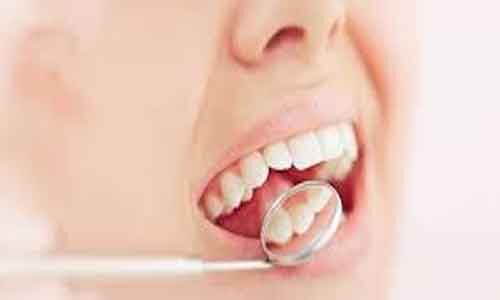- Home
- Medical news & Guidelines
- Anesthesiology
- Cardiology and CTVS
- Critical Care
- Dentistry
- Dermatology
- Diabetes and Endocrinology
- ENT
- Gastroenterology
- Medicine
- Nephrology
- Neurology
- Obstretics-Gynaecology
- Oncology
- Ophthalmology
- Orthopaedics
- Pediatrics-Neonatology
- Psychiatry
- Pulmonology
- Radiology
- Surgery
- Urology
- Laboratory Medicine
- Diet
- Nursing
- Paramedical
- Physiotherapy
- Health news
- Fact Check
- Bone Health Fact Check
- Brain Health Fact Check
- Cancer Related Fact Check
- Child Care Fact Check
- Dental and oral health fact check
- Diabetes and metabolic health fact check
- Diet and Nutrition Fact Check
- Eye and ENT Care Fact Check
- Fitness fact check
- Gut health fact check
- Heart health fact check
- Kidney health fact check
- Medical education fact check
- Men's health fact check
- Respiratory fact check
- Skin and hair care fact check
- Vaccine and Immunization fact check
- Women's health fact check
- AYUSH
- State News
- Andaman and Nicobar Islands
- Andhra Pradesh
- Arunachal Pradesh
- Assam
- Bihar
- Chandigarh
- Chattisgarh
- Dadra and Nagar Haveli
- Daman and Diu
- Delhi
- Goa
- Gujarat
- Haryana
- Himachal Pradesh
- Jammu & Kashmir
- Jharkhand
- Karnataka
- Kerala
- Ladakh
- Lakshadweep
- Madhya Pradesh
- Maharashtra
- Manipur
- Meghalaya
- Mizoram
- Nagaland
- Odisha
- Puducherry
- Punjab
- Rajasthan
- Sikkim
- Tamil Nadu
- Telangana
- Tripura
- Uttar Pradesh
- Uttrakhand
- West Bengal
- Medical Education
- Industry
Severe Periodontal Disease linked to increased dementia risk: Study

MINNEAPOLIS - Gum disease, especially the kind that is irreversible and causes tooth loss, may be associated with mild cognitive impairment and dementia 20 years later. The study has been published in Neurology®, the medical journal of the American Academy of Neurology.
"We looked at people's dental health over a 20-year period and found that people with the most severe gum disease at the start of our study had about twice the risk for mild cognitive impairment or dementia by the end," said study author Ryan T. Demmer, Ph.D., M.P.H., of the University of Minnesota School of Public Health in Minneapolis. "However, the good news was that people with minimal tooth loss and mild gum disease were no more likely to develop thinking problems or dementia than people with no dental problems."
The study involved 8,275 people with an average age of 63 who did not have dementia at the start of the study. The participants were assessed for mild cognitive impairment and dementia. Participants received a full periodontal exam that included measuring gum probing depth, amount of bleeding and recession.
Then participants were put into groups based on the severity and extent of their gum disease and number of lost teeth, with implants counting as lost teeth. At the start of the study, 22% had no gum disease, 12% had mild gum disease, 12% had severe gum inflammation, 8% had some tooth loss, 12% had disease in their molars, 11% had severe tooth loss, 6% had severe gum disease, and 20% had no teeth at all.
A total of 4,559 people was assessed at the end of the study, when they had been followed for an average of 18 years.
Overall, 1,569 people developed dementia during the study, or 19%. This was the equivalent of 11.8 cases per every 1,000 person-years. The study found that of the people who had healthy gums and all their teeth at the start of the study, 264 out of 1,826, or 14%, developed dementia by the end of the study. For those with mild gum disease, 623 out of 3,470, or 18%, developed dementia. For participants with severe gum disease, 306 out of 1,368, or 22%, developed dementia. And 376 out of 1,611, or 23%, developed dementia in the group that had no teeth. This was equal to a rate of 16.9 cases per 1,000 person-years.
When looking at both mild cognitive impairment and dementia, the group with no teeth had about twice the risk compared to participants with healthy gums and all their teeth. People with intermediate or severe gum disease, but who still had some teeth, had a 20% greater risk of developing mild cognitive impairment or dementia compared to the healthy group. These risks were after researchers accounted for other factors that could affect dementia risk, such as diabetes, high cholesterol and smoking.
"Good dental hygiene is a proven way to keep healthy teeth and gums throughout your lifetime. Our study does not prove that an unhealthy mouth causes dementia and only shows an association. Further study is needed to demonstrate the link between microbes in your mouth and dementia, and to understand if treatment for gum disease can prevent dementia," Demmer said.
A limitation of the study is the fact that initial gum examinations were made when the participants had an average age of 63, and it is possible that cognitive decline might have been begun before the start of gum disease and tooth loss.
Hina Zahid Joined Medical Dialogue in 2017 with a passion to work as a Reporter. She coordinates with various national and international journals and association and covers all the stories related to Medical guidelines, Medical Journals, rare medical surgeries as well as all the updates in the medical field. Email: editorial@medicaldialogues.in. Contact no. 011-43720751
Dr Kamal Kant Kohli-MBBS, DTCD- a chest specialist with more than 30 years of practice and a flair for writing clinical articles, Dr Kamal Kant Kohli joined Medical Dialogues as a Chief Editor of Medical News. Besides writing articles, as an editor, he proofreads and verifies all the medical content published on Medical Dialogues including those coming from journals, studies,medical conferences,guidelines etc. Email: drkohli@medicaldialogues.in. Contact no. 011-43720751


